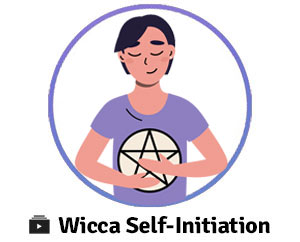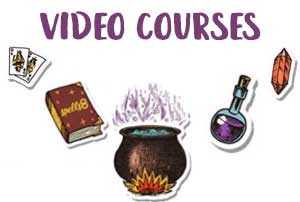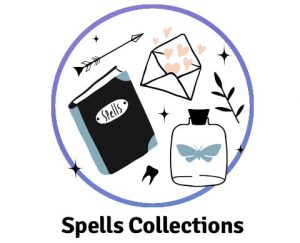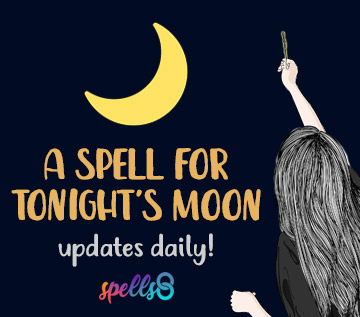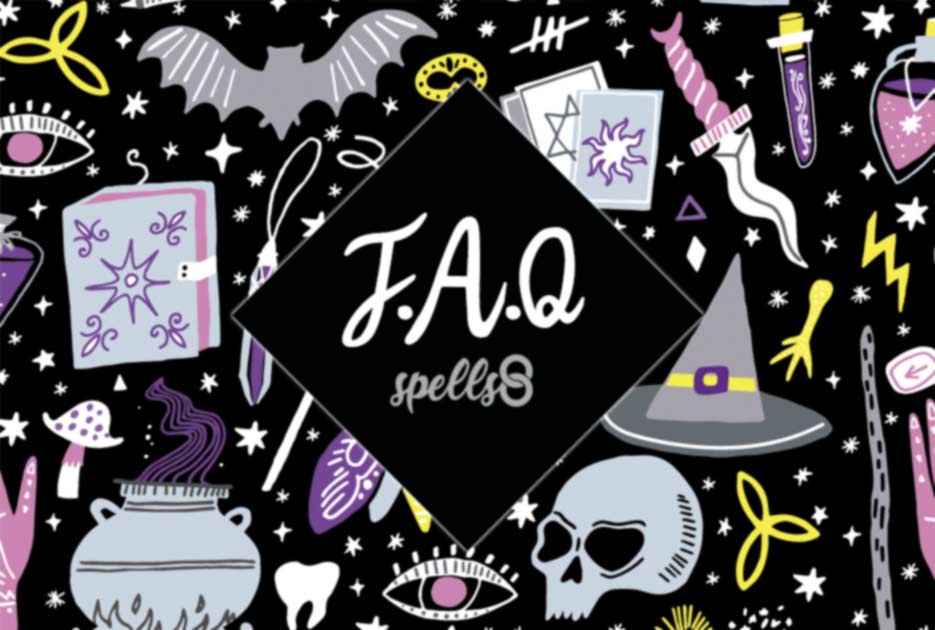
Tap on the questions below to find an answer
🍀 Witchcraft and Magic FAQs
What is a Witch?“Witches were often accused of harming or killing children, frequently in the course of their work as healers and midwives. The death or injury of a child was in many situations the spark that ignited a witch trial or even a full-blown witch craze.” ¹
There is no real evidence that Witches as they are typically portraid even existed. Flying on broomsticks, having sex with the devil, eating children. Most of these ideas were obtained from people who falsely confessed while undergoing torture during the witch trials in Europe, and later in the US.
With her 1921 book The Witch-Cult in Western Europe, Margaret Murray created for the first time the idea of the Witch as a practitioner of good Magic and religious rites to ensure fertility of people and the land. Wicca adopted this idea to then expand it as a religious path, usually in the form of Polytheistic reconstructionism.²
When we train our senses to work with these same energies, we call this practice Witchcraft, or Sorcery. Early shamans, priests, and priestesses set the foundations of modern Sorcery when they started to develop incantations, divination, necromancy, astrology, and other practices. There is no single origin or unique history of Magic. It evolved independently across cultures and continents.
Today, we understand that Magic is the art of changing consciousness according to Will.
So, what is Magick with a k?
Some people prefer to use the term “Magick” to differentiate it from stage magic, the one performed by magicians and illusionists. But ultimately, the word “magic“ has its roots in Proto-Indo-European magh-, which meant “to be able, to have power”, later found in Latin magice, meaning sorcery. The correct term for stage magic is “illusionism” as it is not actual Magic, but rather an illusion of Magic.
Learn more about the History of Modern Paganism on this Video Lesson
Wiccans hold reverence for Nature and accept the existence of a Goddess and/or God, they promote the study and practice of Witchcraft (although it’s not required), along with respect and coexistence with other spiritual paths and religions.
Many adopt Wicca as a path of self-evolution, as a way of connecting to the natural tempo of the Earth, or in the search for ancient esoteric knowledge.
“Our prime directive involves making ourselves better people, enabling us to throw off the chains of past difficulties, unhappy circumstances, and unfortunate situations and… to rise and blossom into spiritual people who gently persevere, rather than wanting the power of others”. – Patheos
Others see Wicca as an ideal foundation to work, experiment and grow their Magic.
“Wiccan books do not tell us how to think, believe, or behave. They give us inspiration and a framework for our own experimentation with the religion”. – Thea Sabin
Not all Witches are Wiccans, nor are all Wiccans Witches.
Learn more about the Wicca in this Lesson: What is Wicca?
Get Self-Initiated here: Wicca Self-Initiation Course in 8 Ritual Nights
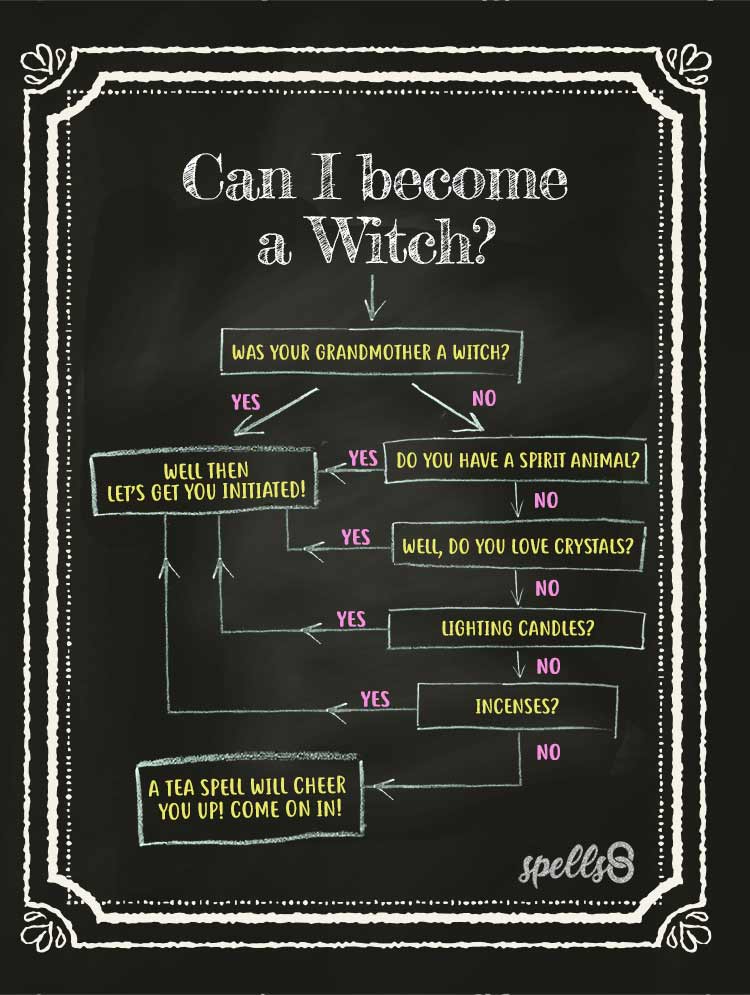
Wicca is simply a spiritual path. It’s a tradition open to everyone interested in growing through a path of love for Nature and respect for others. You do not need any special knowledge, any kind of faculty or psychic ability.
It doesn’t matter if you’re a man, woman, both or neither. Everyone can study this path individually or in groups, without exception of their gender, race, religion or sexual preferences.
It is an awfully common mistake to accuse Wiccans and other Pagans of worshiping Satan or the Devil. Wiccans do not recognize the existence of Satan in the way Christians do. This misconception remains alive even in modern times.
Both Satan and the Devil are Christian constructions. Since Wiccans are not subscribed to Judeo-Christian theology, they do not recognize the existence of Satan, and therefore, they would not have any reason to worship him.
Another example would be the combination of Mexican folk witchcraft with worship of Catholic saints. This happens everyday in many places and is accepted as part of the evolution of religion and spirituality.
If you’re an atheist and don’t feel comfortable saying prayers, invoking deities or calling upon spirits, you can always practice spirituality without religion. There are Nature-based rituals and self-empowering spells that aim to connect with your inner world and awaken the powers that live within you. You don’t need to seek out any Higher Beings because you can always find your Witchcraft inwards through deep meditation.
Having said this, there are no strict rules on who can become a Witch. If it’s in you, you will become a Witch no matter what. Click here to Learn the Basics of Becoming a Witch.
While there are some dangers to Witchcraft, these dangers are usually greatly exaggerated. Physics, chemistry and medicine also require lengthy studies, and the ignorant who wish to manipulate chemicals, explosives or toxic agents will endanger their health and life too.
No progress, no discovery is made without risk. Learn and study as much as you can about protection spells and Safety when working with Magic. Fight your own fears and don’t try anything new unless you’re comfortable with it.
If you need extra protection, consecrate an amulet for your protection and cast a circle of protection regularly.
📓 About Spells
Are Magic Spells real?Not all spells necessarily seek to change things, but rather to protect and prepare us for the challenges of everyday life. A good luck spell can make us feel more confident, inspiring us to take more risks, opening new doors towards personal success. Protection spells can help us dodge or deal with attacks that come from others, typically when we proudly show our work or come out as we are.
Spells without ingredients can be used as prayers or devotionals. Every ritual act or spiritual practice is basically a form of exercise. Think about how your body works: by exercising it frequently and keeping it active, you stay in shape and promote a healthy body. Your spiritual life is no different: To keep it healthy, you will need to take the time and explore your inner self. Spells are a great way of achieving a healthy spiritual life, connecting with ourselves, with our Higher Beings, and staying engaged in personal growth.
The most important thing when casting spells is to take it seriously. Your beliefs, intentions and goals have to be aligned. If you are trying it “just to see what happens”, they will probably never work for you.
See examples of real spells here, or Click Here to Learn How to Cast Real Spells
Real spells are not like in the Harry Potter books. Trying to cast those type of spells is fun but it doesn’t really work because they only came from the author’s mind and are not realistic.
Does this mean that spells do not work? Real spells work, but they are different from what we see in movies. Real spells work by creating subtle changes and bringing power and transformation into our lives.
We love Harry Potter books and movies, but this is not exactly the same kind of Magic.
Today, Witches have adapted the traditional methods and formulas into more accessible terms to fit most modern practitioners’ needs.
You certainly won’t need to sacrifice any living thing or find any strange ingredients to get started. Most spells do require that you have candles, incense, herbs, essential oils and crystals, among other easy-to-find things.
To learn what kind of tools you will actually need, read The Baby Witches Toolkit
Not a lot. We focus on modern-day practical Magic (without a -k). so you might not find many references to Golden Dawn, Thelema, or invocations in ancient Hebrew.
Our focus is to empower solitary practitioners to keep learning and carry out an active practice of positive spirituality. Ceremonial techniques are common when working within the structure of an organized tradition. This can lead to a lot of secrecy and placing more importance on the dogmas themselves than the actual workings of Magic.
As Eclectic Wiccan Witches, we encourage you to live by the Wiccan Rede as a moral code but the rest is up to you. We learn together and share what has worked for us without imposing any strict philosophy.
As for side effects or negative effects: No. If you’re working with positive spells, Magic will usually have beneficial effects. You should not be afraid to try and cast your own spells as long as you’re not trying to hurt anyone. The Wiccan Rede says: “If it harms none, do what you will”
Another common saying is “Good and bad you give out comes back upon you three-fold”.
This means you will be held responsible of your acts and your intentions within this lifetime. In general, as long as you’re not willingly trying to hurt anyone, it’s perfectly safe to send your energies to the Universe and expect for the best. If you do good, good things are going to happen to you in this life. If you do evil, they will come back to you soon.
This is just standard advise for Beginner Witches. Once you gain experience and find what works best for you on a personal level, you can decide what belief system and rules to follow.
Click here to learn more about Safety and Risks of Casting Spells
To learn about these click here: What Types of Spells Are There?
These are some of the types of spells and rituals that you can find on this website:
Types of Spells
Types of Rituals
🌟 Spellcasting Help
Will you cast a spell for me?To read all about your Altar and Tools for Spellcasting click here.
When casting more advanced spells, it can help you stay protected by acting as an energy shield where uninvited energies can’t come in.
Read all about working with Circles of Protection here.
You could cast two spells on the same day, for example, if they are complimentary to each other. The first spell could be a ritual bath or cleanse for protection and the other one a spell to attract love. In this case, the intentions are connected and the spells should reinforce each other without interference.
Ideally, once the Magic work is done, you should continue with your daily routine. Do not stop living your life because you cast a spell. It is crucial not to manifest any anxiety when waiting for the spell to take effect. The spell will manifest when it is ready and especially once the obstacles are overcome. There is little you can do to speed it up.
🔮 Spells8 Membership
What is included in the membership?Can’t find the answer to your question?
Please write your doubts or questions in the form below and we will add an answer to the FAQs as soon as possible:

